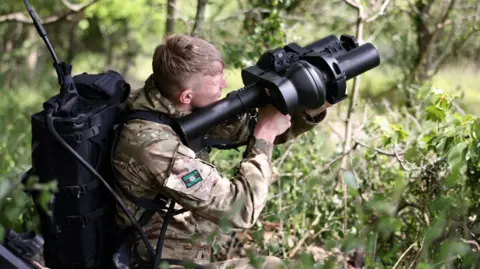The threats we face are now more serious and less predictable than at any time since the end of the Cold War.
Defence Secretary Healey
Key Facts
- The UK government accepted all 62 recommendations from a defence review, including building 12 new nuclear-powered submarines and six new munitions factories.

- Defence Secretary Healey stated that threats from nuclear powers like Russia and China are now more serious and less predictable than since the Cold War.

- Russia is identified as an immediate and pressing threat due to its invasion of Ukraine, which 'makes unequivocally clear its willingness to use force to achieve its goals'.

- The UK plans to increase defence spending to 2.5% of GDP by 2027, with an ambition to reach 3% by 2034, although no guarantees were given for the latter target.

- The defence review marks a shift by warning of multiple, direct threats for the first time since the Cold War and aims to reverse the hollowing out of Britain’s armed forces.
- The UK will deepen institutional ties with European partners beyond military cooperation, including in infrastructure and information technologies.
Key Stats at a Glance
Number of defence review recommendations accepted by UK government
62
Number of new nuclear-powered submarines planned
12
Number of new munitions factories planned
6
UK defence spending target by 2027
2.5%
UK defence spending ambition by 2034
3%
